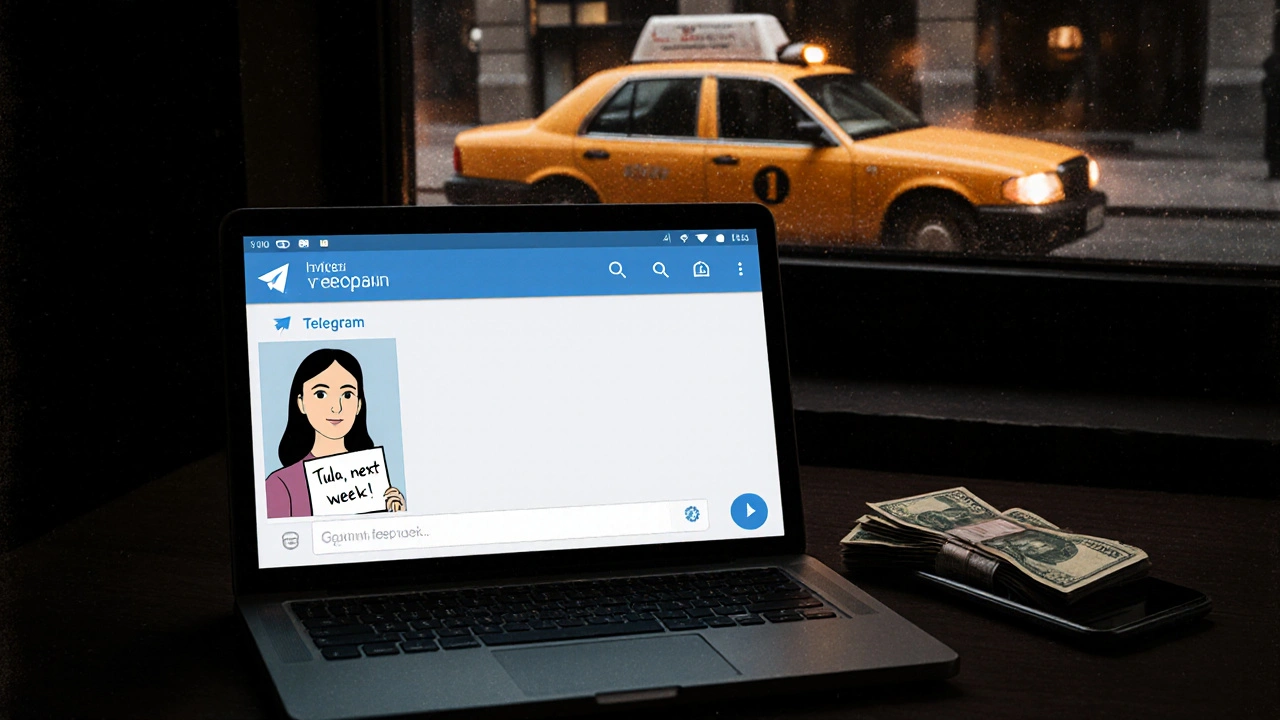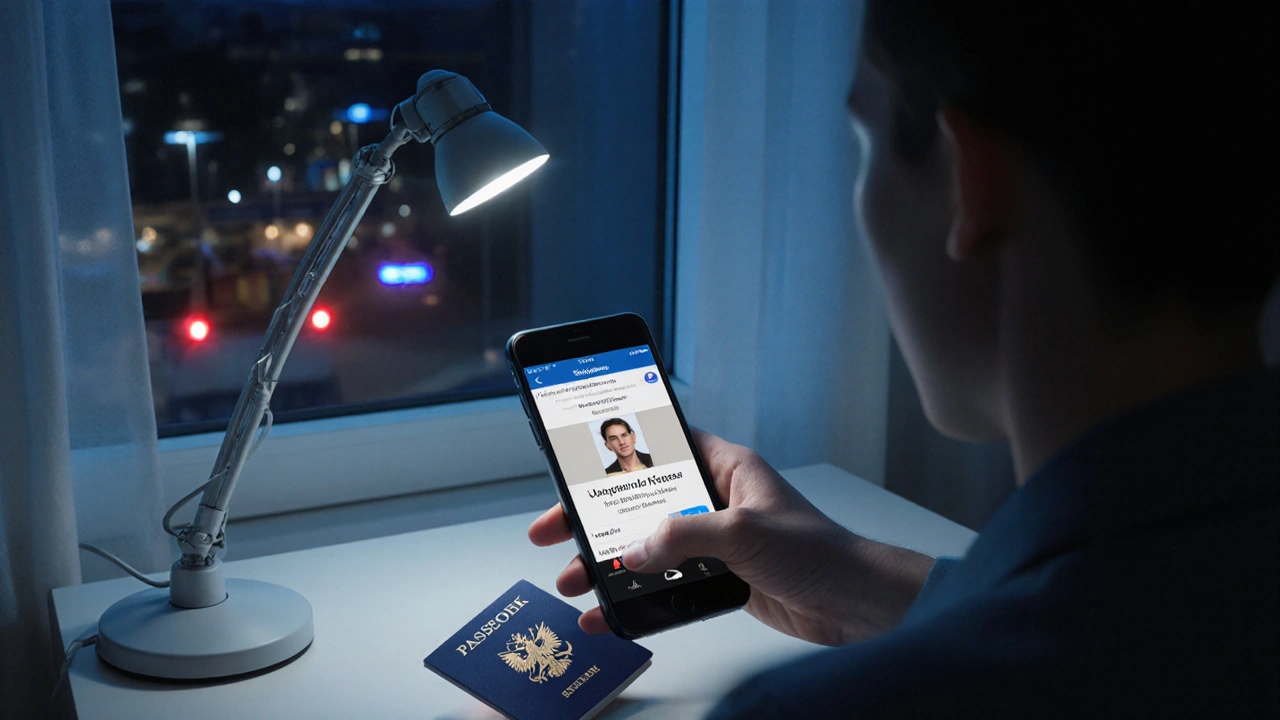If you’re looking for adult services in Moscow right now, things have changed - and fast. What was once a loosely regulated space has become a high-risk environment for both workers and clients. The city’s authorities have tightened rules, cracked down on advertising, and increased police sweeps in areas where adult work used to be common. If you’re planning to use or offer services through platforms like AdultWork Moscow, you need to know exactly what’s legal, what’s not, and how to stay safe.
What’s Changed Since Early 2025
In January 2025, Moscow’s Department of Public Order introduced a new set of guidelines targeting online adult service listings. The rules don’t ban adult work outright - but they make it nearly impossible to operate openly. Platforms like AdultWork now have to verify the identity of every user posting in Moscow. That means real ID, a local phone number, and proof of residence. No more anonymous profiles. No more using someone else’s account.
Ads that mention specific locations - like "private apartment near Krasnaya Presnya" or "available at Hotel Metropol" - are automatically flagged and removed. Even phrases like "discreet meeting" or "no photos" now trigger automated moderation. The system uses AI trained on past police reports to detect patterns associated with illegal activity. If your ad gets flagged twice, your account is suspended for 90 days. A third strike? Permanent ban.
Police have also started using geolocation data from messaging apps. If you’re exchanging contact info via Telegram or WhatsApp and your device pings near a known enforcement zone - like near Tverskaya Street or around the metro stations on the Circle Line - you could be flagged for investigation. It doesn’t matter if you didn’t meet. Just communicating in those areas raises red flags.
How Moscow’s Laws Actually Work
There’s no law that says "prostitution is illegal" in Russia. But there are dozens of other laws that make it dangerous. The most commonly used ones are:
- Article 6.11 of the Administrative Code: Soliciting in public places. This includes standing near metro exits, parks, or even waiting in a car outside a hotel.
- Article 240 of the Criminal Code: Organizing prostitution. If you run a group, manage bookings, or collect payments for others, you can face up to 5 years in prison.
- Article 134: Engaging in sexual acts with minors. Even if you’re 18, if your ID looks fake or your profile suggests youth, you could be accused of this.
Most arrests aren’t for sex itself. They’re for the paperwork. If you don’t have a valid Russian passport with a current registration stamp (propiska), you’re already in violation. Foreign nationals are especially vulnerable - even if you’re on a tourist visa, being found near a known adult work area can lead to deportation.
What AdultWork Moscow Is Doing Now
AdultWork Moscow hasn’t shut down. But it’s changed. The site now requires all Moscow-based profiles to upload a scanned copy of their Russian ID. They also ask for a short video confirming your identity - just you saying your name and date of birth, no extra text. The video is stored encrypted and only accessible to moderators. It’s not public. But if police request data, AdultWork must comply.
Payments are now handled through a third-party Russian payment processor. You can’t use PayPal, Stripe, or crypto. Only bank transfers to a Russian account. That means you need a Russian bank account - which requires residency. Most foreign workers can’t get one. So if you’re not a resident, you’re stuck. You can’t get paid unless you’re legally registered in Moscow.
Also, the "independent" tag is gone. Every profile now says "verified" or "unverified." Only those who passed ID checks get verified. Clients are warned: "Unverified profiles may be illegal. Proceed at your own risk." That’s pushed down in the search results. Verified profiles show up first. Unverified ones? They’re buried under ads for massage parlors and fitness trainers.

What This Means for Workers
If you’re a local woman or man offering services in Moscow, you have two real options:
- Go fully legal - register as an individual entrepreneur (IP), pay taxes, get a business license, and list only through verified channels. But the tax rate is 13% on income, and you need to file monthly. Most workers can’t afford the paperwork.
- Go underground - stop using platforms entirely. Meet through trusted contacts only. Use cash. Never keep digital records. This is the riskiest path, but it’s the one most people still choose.
Many workers have switched to private Telegram channels. These aren’t public. You need an invite. The group admins check IDs manually. Prices have gone up - 5,000-8,000 rubles for a 30-minute meeting, up from 2,000-3,000 a year ago. But the risk of arrest is lower. You’re not on a public site. No one can search for you.
Some workers have moved to nearby cities - Tula, Vladimir, or even Kaluga - where enforcement is weaker. But that means longer travel, higher costs, and less client traffic. It’s not ideal, but it’s safer.
What This Means for Clients
If you’re a client, you’re not safe either. Police in Moscow have started running sting operations targeting men who search for adult services online. They use bots that mimic worker profiles. If you message them, they record your IP, phone number, and chat history. Then they wait. If you arrange a meeting, you get visited by officers at your home or office.
There’s no criminal charge for simply paying for sex - but there is for organizing it. And if you’re caught with someone who’s underage, or if you’ve been flagged before, you could be charged with "pimping" or "sponsoring illegal activity." Fines range from 50,000 to 200,000 rubles. Repeat offenders face jail time.
Most clients now use cash-only, in-person meetings. No messaging apps. No photos. No names. They meet in public places first - a café, a park bench - to confirm identity before moving to a private location. Many avoid Moscow entirely and go to smaller towns where the risk is lower.

How to Stay Safe in 2025
Here’s what actually works right now:
- Never use public platforms - AdultWork, VK, Telegram public channels. Use invite-only groups only.
- Never share your real name, address, or phone number - Use burner phones and fake names. Even if you think you trust someone.
- Always meet in public first - Coffee shops, malls, libraries. Never go to a hotel or apartment without confirming the person is who they say they are.
- Use cash - No bank transfers, no digital payments. If they ask for it, walk away.
- Don’t take photos - Even selfies with your phone can be used against you if police get access to your device.
- Know your rights - If police stop you, say nothing. Ask for a lawyer. Do not sign anything. Do not admit to anything.
There’s no perfect way to do this safely. But the rules have changed. What worked in 2023 won’t work in 2025. If you ignore these changes, you’re not being bold - you’re being reckless.
Where to Find Reliable Updates
There’s no official government site that lists adult work rules. But there are a few trusted Russian forums where workers share real-time updates:
- RuForum Adult - A moderated Russian-language forum with verified worker reports. No ads. No bots.
- SafeMoscow - A Telegram channel run by ex-police officers who track enforcement patterns. They post daily updates on which metro stations are being watched.
- Legal Aid for Sex Workers - A nonprofit that offers free legal advice to workers arrested under new laws. They don’t advertise, but you can find them through word of mouth.
Don’t rely on Reddit, Facebook, or English-language blogs. They’re outdated. Moscow’s rules change every few months. What’s true today might be illegal tomorrow.
What’s Next?
Authorities are testing facial recognition software in taxis and ride-share apps. If you’re picked up by a driver who’s been flagged for transporting adult workers, your face could be logged. That data might soon be linked to police databases. It’s not live yet - but it’s coming.
Some workers are trying to go fully remote - offering virtual services only. But even that’s under scrutiny. Russia passed a law in April 2025 banning "online sexual services" if they involve real-time interaction. Streaming platforms like Twitch and OnlyFans now block Russian IP addresses for adult content. If you’re caught streaming, your device can be seized.
The message is clear: Moscow doesn’t want adult work visible. It doesn’t want it organized. It doesn’t want it reported. The only way to survive is to disappear - completely.
Is it still legal to work as an escort in Moscow?
There’s no specific law banning escort work, but nearly every action associated with it - advertising, meeting in public, using online platforms, accepting digital payments - violates other laws. Police use minor infractions to arrest people. So while it’s not "illegal" on paper, it’s practically impossible to do safely.
Can foreign nationals work as escorts in Moscow?
Technically, yes - but only if you have a valid Russian residence permit and a registered bank account. Without those, you can’t verify your profile on AdultWork, you can’t get paid, and you can’t prove your identity if stopped by police. Most foreign workers are arrested within weeks and deported.
What happens if I get caught?
First-time offenders usually get fined between 50,000 and 100,000 rubles (about $500-$1,000 USD). Repeat offenders face up to 2 years in prison. If you’re a foreigner, you’ll likely be deported after paying the fine. Your visa will be canceled, and you’ll be banned from re-entering Russia for 5 years.
Why can’t I use PayPal or crypto to get paid?
Russian law requires all financial transactions involving adult services to go through state-approved banks. PayPal and crypto are considered "unregulated" and are flagged as high-risk. AdultWork is legally required to block them. If you try to use them, your account will be suspended, and your payment history may be shared with tax authorities.
Are there any safe platforms left for adult work in Moscow?
No public platform is safe anymore. Even verified profiles on AdultWork can be traced by police. The only options left are private Telegram groups with strict vetting, or in-person networks built through word of mouth. But even those carry risk. There’s no truly safe option - only less dangerous ones.





